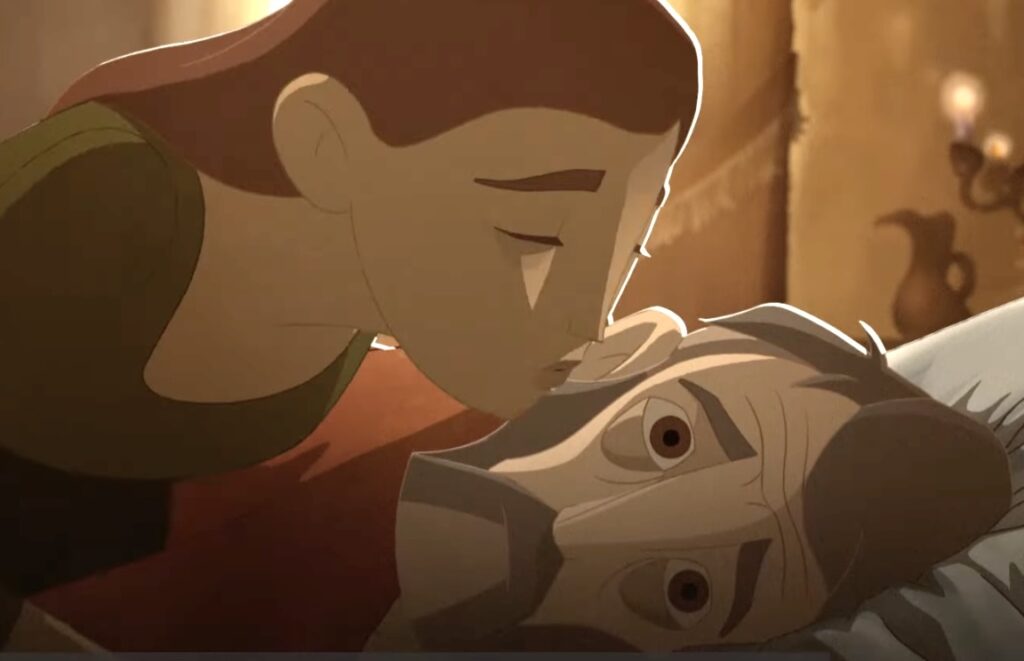Dementia’s alarm call

My wife has instigated a domestic green revolution. While she has always been environmentally conscientious, recently finishing Sir David Attenborough’s A Life On Our Planet, and watching Chris Packham’s provocative Is It Time To Break The Law? documentary have pushed her towards more radical action.
She’s not about to suspend herself from the Dartford Crossing, she doesn’t like heights, but in her own way she’s shaking up the way we think about the environment in our household. We have moved to the UK’s most eco-friendly energy plan, based entirely on renewables. Every product in our house is being swapped out for the most sustainable alternative. We’ve adopted vegan shopping weeks. We’ve signalled our virtue.
Attenborough and Packham’s influence have been stark. Both broadcasters have witnessed across their lives the fires that are spreading across the planet, and they are forcing our hands from our eyes so that we might see too. The days of denial are long behind us, the plastic is piling up in the Atlantic, the rivers are dust and the last exhausted polar bears are clinging to dwindling icebergs.
With an existential crisis like climate change, we have to see it for what it is, and when we do, if we can, we act – and that action generates new hope. Indeed Attenborough’s book concludes on hopeful notes, a manifesto for activism, but he only earns this attention after confronting the reality of the horrors.
Before I joined Claremont, I worked for many years in communications roles at Alzheimer’s Research UK. One of the last projects I worked on with my brilliant team was the charity’s most recent campaign, Change The Ending. Like the work of disruptive environmental campaigns, it was devised as a wake-up call to the crisis of dementia, the biggest killer in the UK. The core film depicts a Disney-like prince and princess vanquishing a dragon, before a greater foe enters their lives. Watch the 2min film for the full effect.
One motivation for me working at ARUK for nearly 15 years was the question of why a medical issue of dementia’s size received such paltry attention and resources given its impact. Over time, I learned much of its Cinderella status was driven by an underestimation of its true impact. Dementia too often played out behind closed doors, the bleak realities unwitnessed outside of devoted, but often broken carers and families. The depictions we often saw were of confused, slightly detached elderly people. They bumbled away, and people looked on with compassionate smiles. This allowed us, collectively, to dismiss it, or even to laugh it away – the British Way.
The concluding stages of dementia are bleak and hard. People with the condition need constant, comprehensive care to get through the day. Dementia will rob them of their ability to swallow. They may well become doubly incontinent, aggressive, or completely absent, or both, from moment to moment. While instances of light might occasionally shine through, and love never diminishes, the overall experience, for millions, has been dark.
The ARUK campaign attracted some pockets of criticism. Some felt it carried a demoralising tone and could upset newly diagnosed people. Care charities have campaigned in recent years around the idea of ‘living well with dementia’, pointing to people’s ability to continue their lives post-diagnosis with some support and adjustment and, hopefully, growing understanding from the people they meet. This is true.
But what is also true is that, in a world where disease-slowing treatments are not yet in the hands of patients, the trajectory of dementia is a one-way street towards a difficult end. In depicting this ending with honesty, and imploring us to help change it, ARUK made its case for research which brings the ultimate hope of answers.
Other cause of death charities, like cancer or heart disease, have depicted the heart-breaking conclusions of disease in campaigns for years. In a sense, we are doing this with climate change too: waking up to the death of our planet. But, until now, not for dementia.
While we all want to cling on to hope, we’re never going to get that for people with dementia unless we light fires around it and prompt a response. Many of us believe that collective action and pioneering science will keep our planet functioning, and we have to believe we can do the same for dementia. But that process begins with the alarm call.